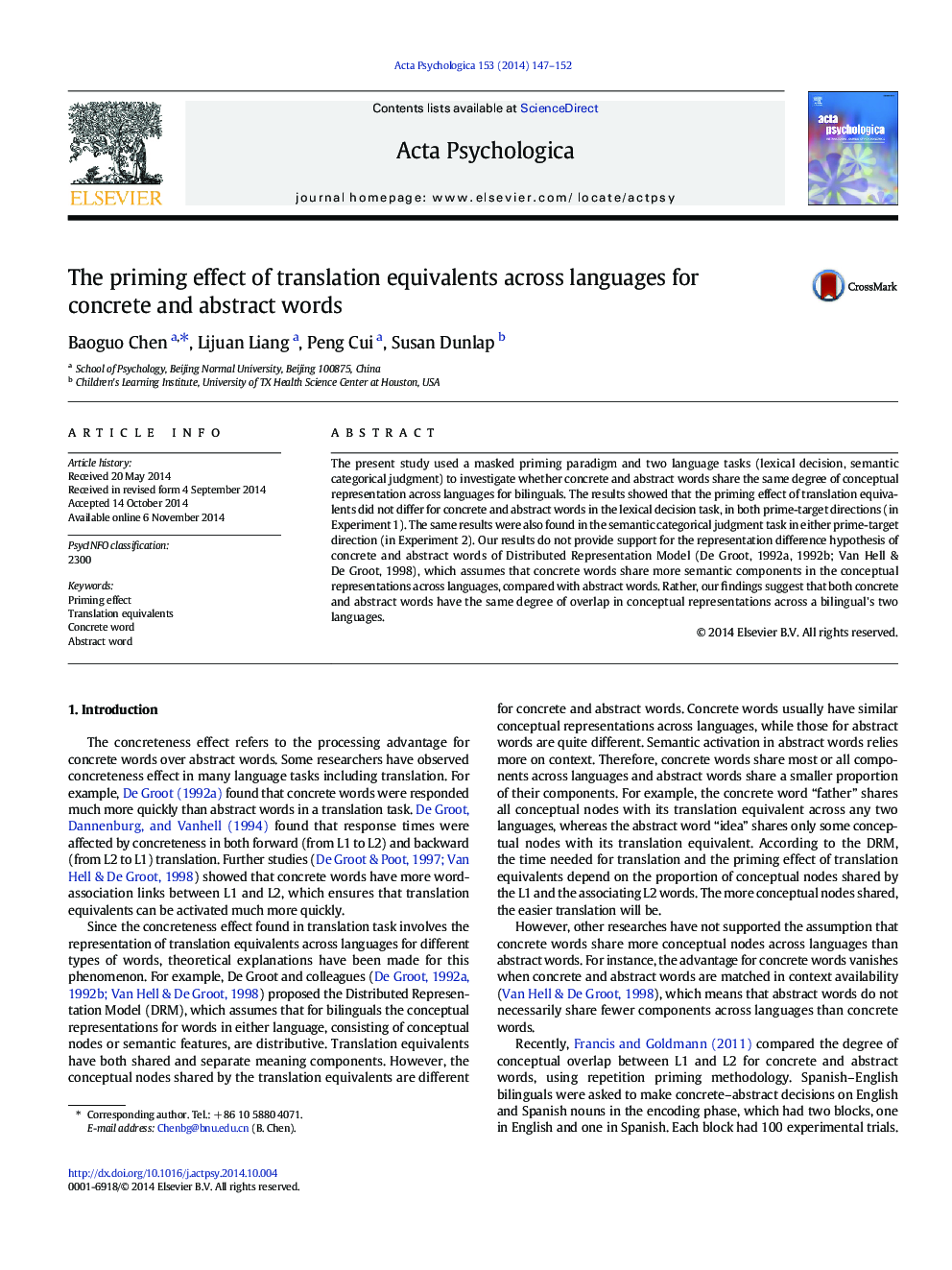| Article ID | Journal | Published Year | Pages | File Type |
|---|---|---|---|---|
| 919774 | Acta Psychologica | 2014 | 6 Pages |
•The cross-language priming effect was equivalent for concrete and abstract words.•Concrete and abstract words share the same degree of conceptual representation.•The results do not provide support for the Distributed Representation Model.
The present study used a masked priming paradigm and two language tasks (lexical decision, semantic categorical judgment) to investigate whether concrete and abstract words share the same degree of conceptual representation across languages for bilinguals. The results showed that the priming effect of translation equivalents did not differ for concrete and abstract words in the lexical decision task, in both prime-target directions (in Experiment 1). The same results were also found in the semantic categorical judgment task in either prime-target direction (in Experiment 2). Our results do not provide support for the representation difference hypothesis of concrete and abstract words of Distributed Representation Model (De Groot, 1992a, 1992b; Van Hell & De Groot, 1998), which assumes that concrete words share more semantic components in the conceptual representations across languages, compared with abstract words. Rather, our findings suggest that both concrete and abstract words have the same degree of overlap in conceptual representations across a bilingual's two languages.
